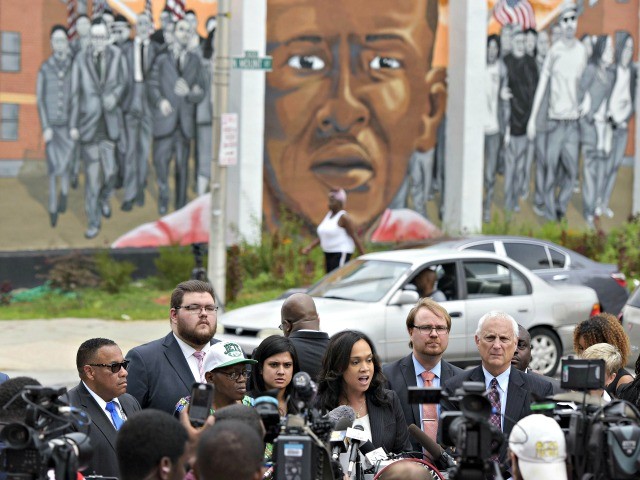Attorney General Jeff Sessions issued a statement Friday raising concerns over a consent decree to impose federal monitoring of the Baltimore Police Department.
The U.S. District Court for the District of Maryland entered the decree Friday morning to resolve the findings of the investigation of the Baltimore Police begun by the Civil Rights Division of President Obama’s Department of Justice after the death of suspected drug dealer Freddie Gray in April 2015.
Mr. Gray’s death in police custody likely was the result of injuries he sustained after officers did not buckle his seatbelt after arresting him and placing him in the back of their van. The death set off days of intense rioting and looting that saw the violence-ridden city in flames and stretched already strained police-community relations to the breaking point.
All six officers involved in Mr. Gray’s death were acquitted of criminal wrongdoing or had all charges against them dropped, but the incident prompted a Department of Justice (DOJ) investigation into the Baltimore Police Department’s practices. The resulting report, by the Civil Rights Division under Obama-appointed Assistant Attorney General Vanita Gupta, charged Baltimore PD with widespread “racial bias,” excessive use of force, and impermissible searches of disproportionately black suspects. The report forced the negotiations between the City and the DOJ that led to the consent decree that come into force Friday.
The DOJ, now under Trump-appointee Sessions, had sought to delay or modify the 227-page decree, which sets out extensive regulations of police conduct and calls for a “Community Oversight Taskforce” to monitor officers throughout Baltimore. U.S. District Judge James Bredar, however, refused to deviate from the agreement that Sessions described, in his statement, as “negotiated during a rushed process by the previous administration and signed only days before they left office.”
Sessions pointed to the so-called “Ferguson effect” taking place in Baltimore since the Gray-riots, where police back off enforcement for fear of inflaming the public fury and incurring sanction for civil rights violations. According to Session’s statement:
Baltimore has seen a 22 percent increase in violent crime in just the last year. While arrests in the city fell 45 percent based on some of these ill-advised reforms, homicides rose 78 percent and shootings more than doubled. Just in 2017, we’ve seen homicides are up another 42 percent compared to this time last year. In short, the citizens of Baltimore are plagued by a rash of violent crime that shows no signs of letting up.
Sessions went on to criticize the decree, which has the support of Baltimore’s political leadership. “There are clear departures from many proven principles of good policing that we fear will result in more crime,” he wrote.
